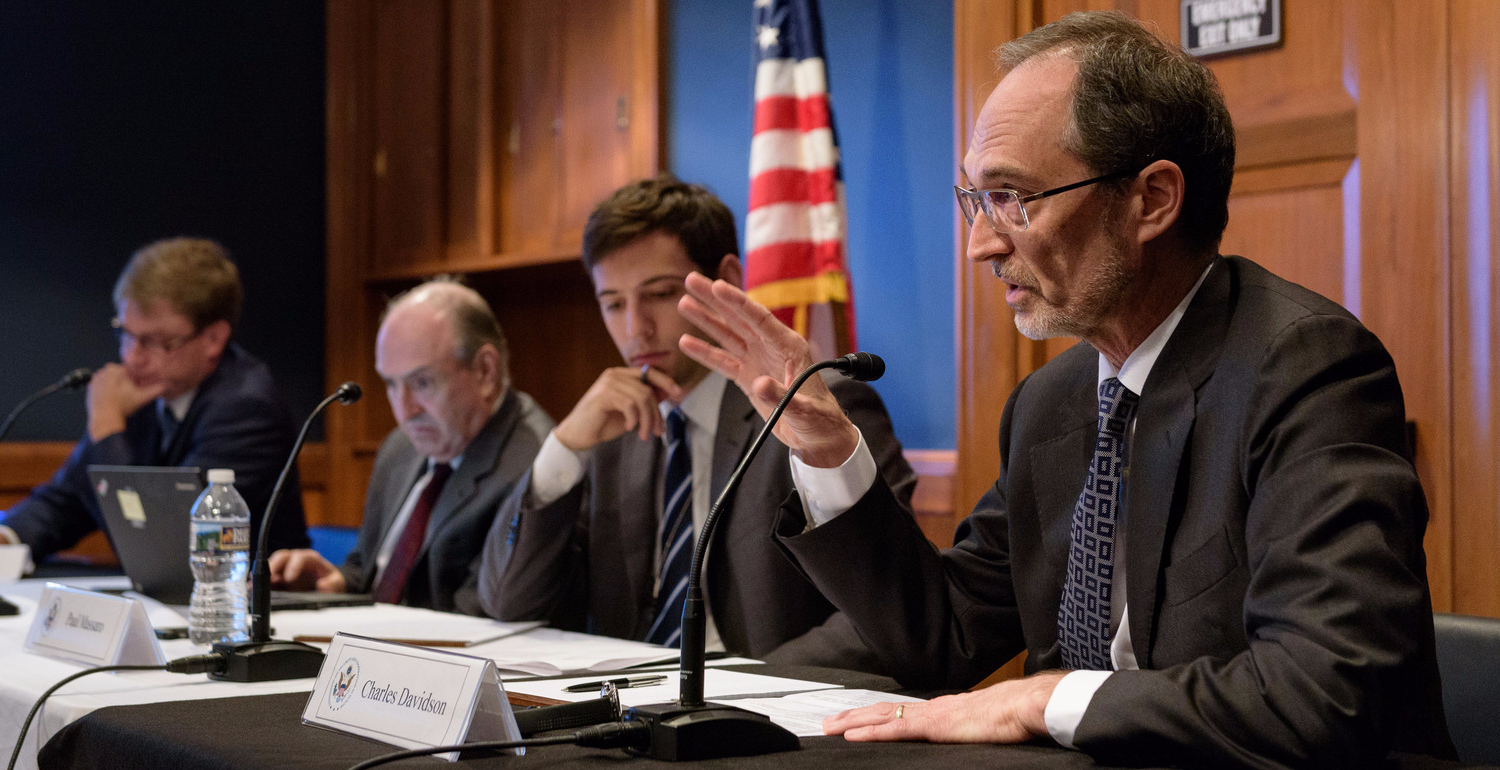The World Bank estimates that twenty to forty billion dollars are stolen from developing countries every year. The majority of stolen funds are never found, and even if they are, recovering stolen assets and repatriating victims is a complicated process. The process often involves many different countries with different legal frameworks and financial structures.
On June 1, 2017, the Helsinki Commission held a briefing on asset recovery in the OSCE region. Ill-gotten assets from the region frequently end up in money laundering safe havens in the West, where Western financial services enable the safeguarding of stolen funds.
Briefers included Charles Davidson, executive director of the Kleptocracy Initiative at the Hudson Institute; Brian Campbell, legal advisor for the Cotton Campaign; and Ken Hurwitz, senior managing legal officer on anti-corruption with the Open Society Justice Initiative. The briefing was moderated by Paul Massaro, economic and environmental policy advisor with the Helsinki Commission.
Panelists at the briefing discussed methods to achieve responsible repatriation for grand corruption. After tracing and freezing assets, Western authorities are faced with the dilemma of how to return assets stolen by kleptocrats to the people of that country. A critical part of anti-corruption work, successful repatriation can empower civil society and democratic development in affected countries. In turn, civil society and the judiciary can play critical roles in fighting and exposing grand corruption. Panelists drew comparisons between the challenges associated with returning assets stolen by the Karimov regime in Uzbekistan and the successful case in Kazakhstan, where $115 million in disputed assets was returned to the people through the BOTA Foundation.
While grand corruption takes on many different forms, most corrupt countries in the OSCE region are former members of the Soviet Union and have imported Moscow’s own brand of corruption. Panelists discussed how the lack of transparency and accountability in Western financial systems facilitate the looting of former Soviet countries. Additionally, they argued for the United States’ national interest in countering corruption and ensuring responsible repatriation.





